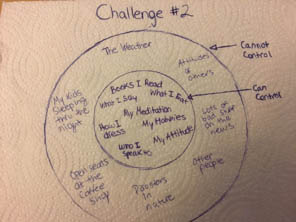Would you want to travel back in time to be a child again? Many people do not want to relive their childhood, even those who had the most loving parents, supportive siblings, and best of schools. There is a simple reason why when we transition from child to adult, we are often much happier, even though we have more responsibilities. As adults we have much more control over our lives than we ever did as children.
Take a typical 10 year old’s week day in suburbia:
Up at 7 am. Dressed and fed by 8 am. Arrive at school by 8:30 am. Unless the child is at an atypical school with more of a free schedule, the school day schedule is fixed by the classroom teacher, gym, music, art (if they are lucky to still have these), lunch. At 3:00 pm, the child is transitioned to an after-school program, whether it be religious education, soccer, gymnastics, music lessons, scouting, or tutoring at the local library. Home by 6:00 pm, dinner, homework, bathing time. For the most fortunate child, the only decisions they get to make during their entire day may be what they wear in the morning and what book to read at bedtime.
In our previous blog post on Personal Growth and taking control, we discussed Martin Seligman’s research on the tremendous value of having a sense of control. If reaching a healthy sense of control is challenging for an adult, put yourself in your child’s shoes!
When asked, most parents report that their top priority in raising their children is their happiness. Given what we know about how the sense of control contributes to overall happiness, we can help our children gain a sense of control in their lives – even in the face of a child’s daily regimen.
Through a series of challenges, Renee Jain, MAPP lays out a plan that may help children through normal every-day stresses and some tools a child can use to help him/her gain a sense of control:
- The Strengths Challenge – Have your child trace his/her hand. Have him/her write down five of their greatest strengths, one on each traced finger. When your child encounters an adversity, ask them to pick a finger and use the strength listed on that finger to resolve the problem.Renee Jain says the science is clear. Identifying and applying character strengths increases life satisfaction, well-being and even academic performance.
The Control Challenge – The concentric circle diagram discussed in our previous post is a helpful tool for our children as well. As you may recall, we draw two concentric circles, drawing one within the other. In the outer most circle, the child lists what they do not have control over. Maybe it is the days of the week that they spend with Mom and when they stay with Dad. In the inner circle, they list what it is that they can control, such as their favorite snack at each house.
As you do this exercise try to focus on improving the things in the inside circle and also adding more things to the inside circle over which your child believes he/she now has control.
Renowned psychologist, Martin Seligman, studied this idea of control as it is related to mental health. He discovered that when people believe they have no control over bad things that happen to them, they eventually stop trying to make their life and circumstances better. According to Renee Jain, taking control back is key to turning one’s life around.
- The Mindfulness Challenge – This tool helps children better manage anxieties and fears over the future and stop ruminating over the past. The exercise is intended to bring them into the present and allow them to focus on what is occurring in their life right now. The question your child should try to answer is: “what is going on right now?” not “what if something bad happens in the future?”
To implement the Mindfulness Challenge, have your child draw a grid with 6 squares. For ease, draw three vertical lines and four horizontal lines. In each square have your child draw an image of each of the five senses, leaving the last square blank. This exercise asks your child to focus on what he/she is seeing, hearing, smelling, etc. right now. Your child can write a short note next to each sense and the blank can be used for your child to write down his/her feelings at the moment.
Helping children cope with and manage their anxiety and stress will go a long way toward easing the family’s anxiety.
For more information, or to talk about pending separation, divorce, or family issues with one of Jacobs Berger’s licensed and experienced New Jersey matrimonial law attorneys, give our office a call at 973-710-4366 or email us at info@jacobsbergerll.wpengine.com.

 The Control Challenge – The concentric circle diagram discussed in our previous post is a helpful tool for our children as well. As you may recall, we draw two concentric circles, drawing one within the other. In the outer most circle, the child lists what they do not have control over. Maybe it is the days of the week that they spend with Mom and when they stay with Dad. In the inner circle, they list what it is that they can control, such as their favorite snack at each house.
The Control Challenge – The concentric circle diagram discussed in our previous post is a helpful tool for our children as well. As you may recall, we draw two concentric circles, drawing one within the other. In the outer most circle, the child lists what they do not have control over. Maybe it is the days of the week that they spend with Mom and when they stay with Dad. In the inner circle, they list what it is that they can control, such as their favorite snack at each house.




